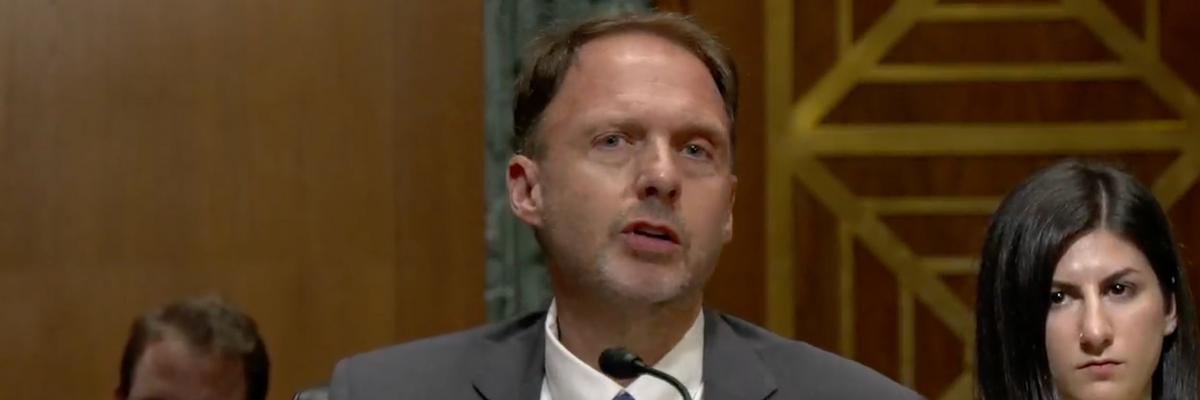Democrats on the U.S. Senate Finance Committee raised alarm Wednesday over the nomination of American Enterprise Institute senior fellow Andrew Biggs to serve on the Social Security Advisory Board, pointing to his long record of supporting privatization efforts and benefit cuts.
President Joe Biden first nominated Biggs to the independent board in 2022 and renominated him early last year following the end of the 117th Congress. By nominating Biggs, a conservative, to the post, Biden adhered to the board's tradition of bipartisanship.
But during the finance committee's confirmation hearing for Biggs and other nominees, Sen. Elizabeth Warren (D-Mass.) said that she doesn't "understand why we are being asked to confirm someone whose plan for strengthening Social Security is to gut its protection" to a spot on the Social Security Advisory Board (SSAB), which advises lawmakers, the president, the Social Security commissioner on how to bolster the New Deal program.
"In all fairness to Mr. Biggs, his views are not extreme outliers," Warren added. "His plan is Republicans' plan. Republican policymakers have spent years trying to undermine Social Security by pushing to reduce benefits, to raise the retirement age, and to cut payroll taxes that keep the program alive."
Warren pressed Biggs on whether he supports raising taxes on the wealthy to ensure Social Security's solvency over the long term, as Democratic lawmakers have proposed. In 2023, millionaires stopped paying into Social Security just two months into the year thanks to a cap on the amount of income subject to the program's payroll tax.
Biggs said he would "prefer not to" lift the payroll tax cap.
"So you oppose it, OK," Warren responded. "Raising the payroll tax income cap so that the wealthiest Americans pay their fair share would extend Social Security's solvency by 75 years. But if you take raising revenue from the wealthiest people off the table, then that leaves one option to extend Social Security's solvency, and that is benefit cuts."
Sen. Sherrod Brown (D-Ohio) pointed to Biggs' tenure on a George W. Bush administration commission that suggested partially privatizing Social Security by allowing workers to move a portion of their payroll tax contributions into private accounts, a change that would have compromised the program's primary funding source.
"I'm concerned about your record on Social Security, as you know," Brown said Wednesday, adding that Biggs and his allies support letting "Wall Street gamble with people's guaranteed retirement security."
"You advocated privatizing Social Security," said Brown. "You and your allies back off that sometimes, saying you're not—but you have been."
Biggs told Brown that he does not support privatizing Social Security, breaking with his previous view. Biggs also said that his proposed frameworks for Social Security reform have not included raising the retirement age—but acknowledged he has said in the past that it's not an "unreasonable idea."
During a Senate Finance Committee subcommittee hearing in 2013, Biggs said the "idea that we can't have a higher retirement age I think it just flies in the face of the fact that people did, in fact, retire later in the past, and today's jobs are less physically demanding than they were in the past."
Wednesday's hearing came two weeks after the Republican-controlled House Budget Committee voted largely along party lines to advance legislation to create a fiscal commission for the nation's trust fund programs. Opponents of the bill say it's a ploy to fast-track cuts to Social Security and Medicare.
Social Security Works, a progressive advocacy group, warned Wednesday that "if confirmed to the SSAB, Andrew Biggs would influence policymakers to push for Social Security cuts."
"This would devastate working class families, while creating another way for billionaires to avoid paying their fair share into the system," the group wrote on social media.

